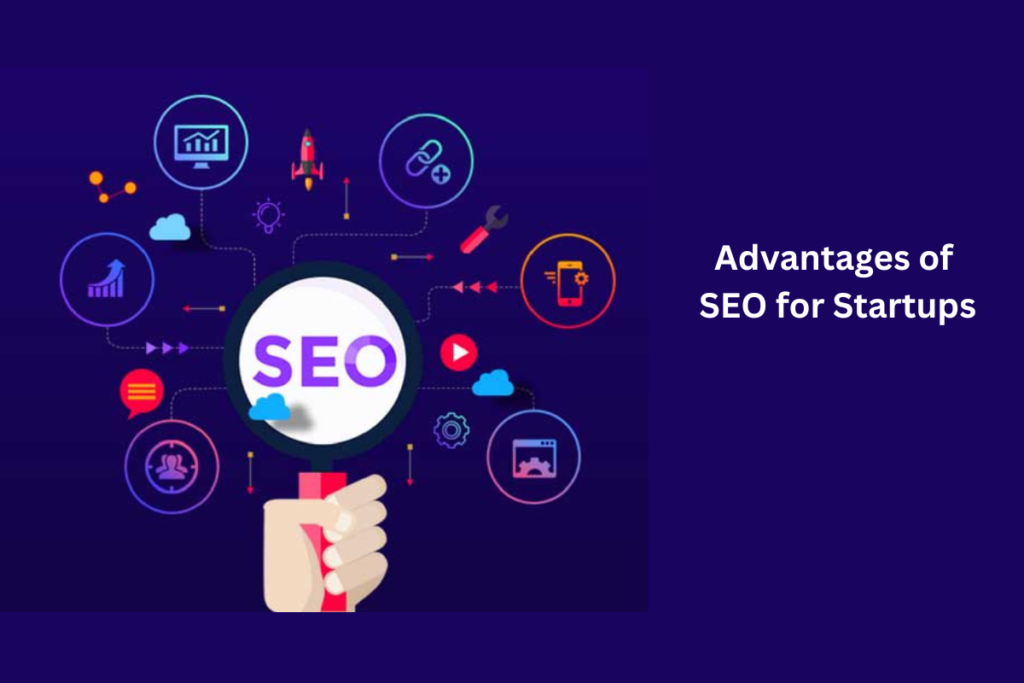Startups are new businesses aiming to grab the market and cope with cutthroat competition. However, many of them fail to survive even for a year. That is where SEO for Startup can help you establish a strong identity in the digital market.
SEO (Search engine optimization) is the process of accomplishing a higher rank in search engines to gain more visitors. Moreover, it is a cost-effective strategy, when implemented effectively, that assists you in finding potential clients and increasing sales.
Table of contents
This article will explain everything you should know about
SEO for Startups
SEO for startup is crucial for many reasons, these include gaining a huge customer base, surviving in the competitive market, and increasing brand awareness. If you’re new to the scene and unsure about SEO’s importance for business growth, here’s why it’s vital.
This guide is a pathway for you to learn the importance of search engine optimization for your startup
Advantages of SEO for Startups
Investing in SEO is the real deal for startups these days. We all know that getting noticed in online searches is crucial for your long-term survival.

| Advantage | Explanation |
| Increased Visibility | SEO helps startups to improve their online visibility by ranking higher in search engine results pages (SERPs). This increased visibility can lead to more organic traffic to their website, resulting in greater brand awareness and potential customer acquisition. |
| Cost-Effective Marketing | Compared to traditional advertising methods, SEO is relatively cost-effective for startups. While it requires time and effort, the long-term benefits of higher organic search rankings can outweigh the initial investment, providing a sustainable marketing strategy on a limited budget. |
| Targeted Audience Reach | Through keyword optimization and content strategy, startups can tailor their SEO efforts to reach a specific target audience interested in their products or services. This targeted approach increases the likelihood of attracting qualified leads and potential customers. |
| Builds Credibility and Trust | Ranking highly in search results signals credibility and trustworthiness to users. Startups that appear prominently in SERPs are perceived as more reputable and reliable, which can positively influence consumer trust and confidence in their brand, leading to higher conversion rates. |
| Long-Term Sustainability | Unlike paid advertising, which stops generating traffic once the budget is exhausted, SEO efforts can have a lasting impact. By consistently optimizing their website and producing high-quality content, startups can maintain and improve their search rankings over time, ensuring sustainable growth. |
| Competitive Advantage | In competitive markets, SEO can provide startups with a competitive edge by allowing them to outrank competitors in search results. By implementing effective SEO strategies, startups can establish themselves as industry leaders and gain a larger share of the market. |
Steps to Consider while Doing SEO for Startup
Above we have learned about the importance of SEO for startup. However, it is the implementation of SEO that matters at the end of the day. In other words, it takes extensive knowledge and years of experience to successfully execute an SEO campaign.

- Keyword Research and Audience Analysis: Start by understanding your audience and their search behavior. Conduct keyword research using tools like Google Keyword Planner, SEMrush, or Ahrefs to find relevant terms with high search volume and low competition. Focus on long-tail keywords specific to your niche and aligned with user intent.
- On-Page Optimization: Optimize your website’s structure, content, and HTML elements for search engines and users. Ensure your website is easily navigable with clear and logical site architecture. Optimize title tags, meta descriptions, and heading tags with relevant keywords to improve click-through rates and search engine visibility. Create high-quality, engaging content that addresses the needs and interests of your target audience.
- Off-Page SEO and Link Building: Build authority and credibility for your startup by acquiring quality backlinks from reputable websites. Develop a diverse backlink profile with links from relevant industry websites, blogs, directories, and social media platforms. Focus on earning natural links through compelling content, outreach, and relationship building.
- Local SEO: If your startup serves a local audience or has a physical location, optimize for local search to increase visibility in local search results. Claim and optimize your Google My Business listing with accurate business information, photos, and reviews. Ensure consistent NAP (name, address, phone number) across all online directories and listings.
- Monitor, Measure, and Iterate: Monitor your website with tools like Google Analytics and Search Console. Track metrics like organic traffic, keyword rankings, and conversion rates to assess SEO performance. Stay updated on SEO trends and algorithm changes for ongoing improvement.
Conclusion
In the fast-paced world of startups, establishing a strong online presence is paramount for survival and growth. SEO offers startups a cost-effective and sustainable strategy to increase visibility, attract targeted traffic, and build credibility in the digital landscape. By investing in keyword research, on-page optimization, off-page SEO, local SEO, and continuous monitoring, startups can position themselves for long-term success.
FAQS
Even in niche markets, there are potential customers actively searching for specific products or services. Focus on long-tail keywords and create valuable, niche-specific content to attract and engage your target audience.
SEO is a long-term strategy, and results can vary depending on various factors such as competition, website authority, and the implementation of SEO tactics. While some improvements may be noticeable within a few months.
The decision to hire an SEO agency or manage SEO in-house depends on the resources, expertise, and budget available to the startup.
SEO is an ever-evolving field, with search engine algorithms and consumer behavior constantly changing. Startups should regularly review and adapt their SEO strategies to further align with current best practices and industry trends.


